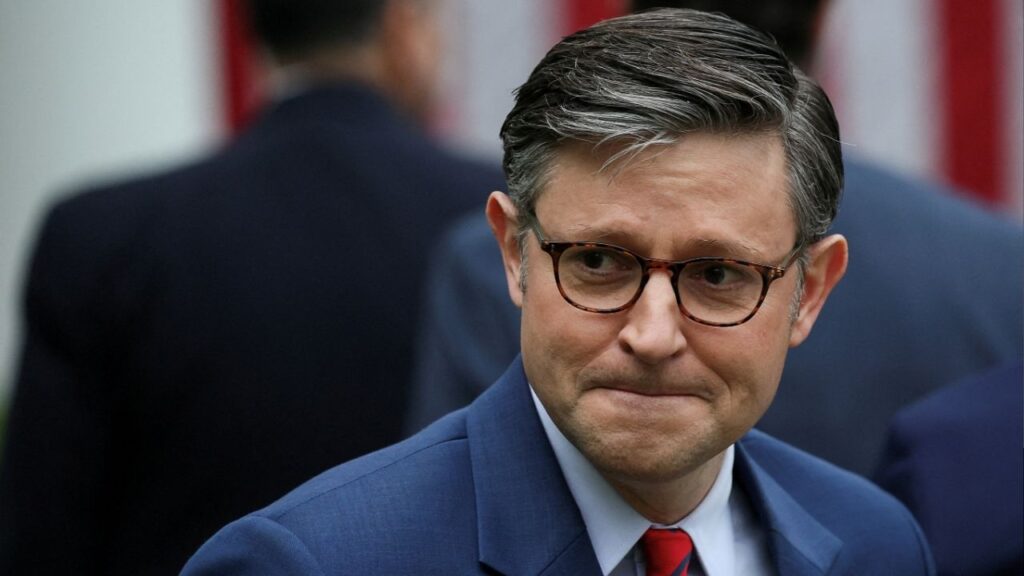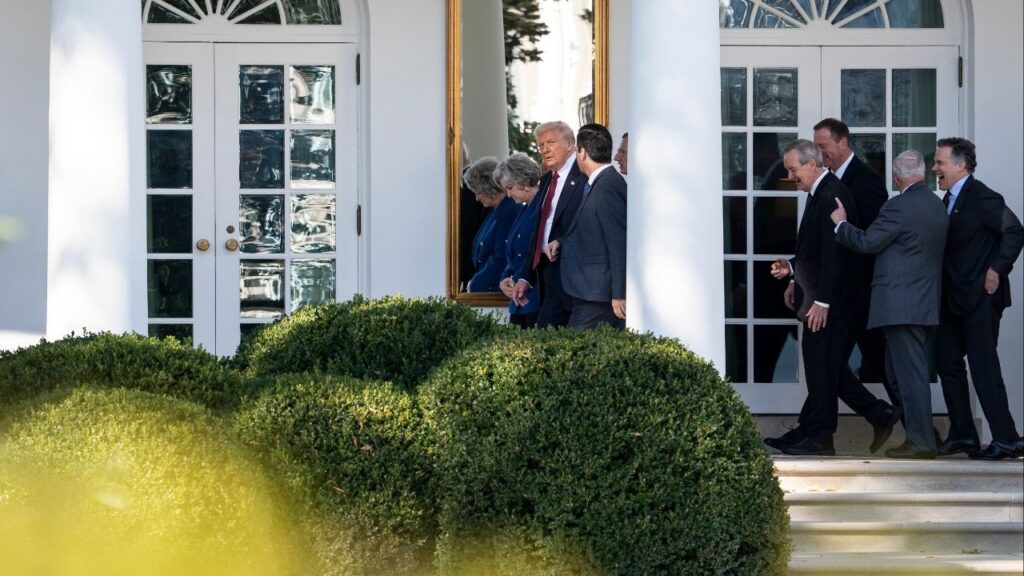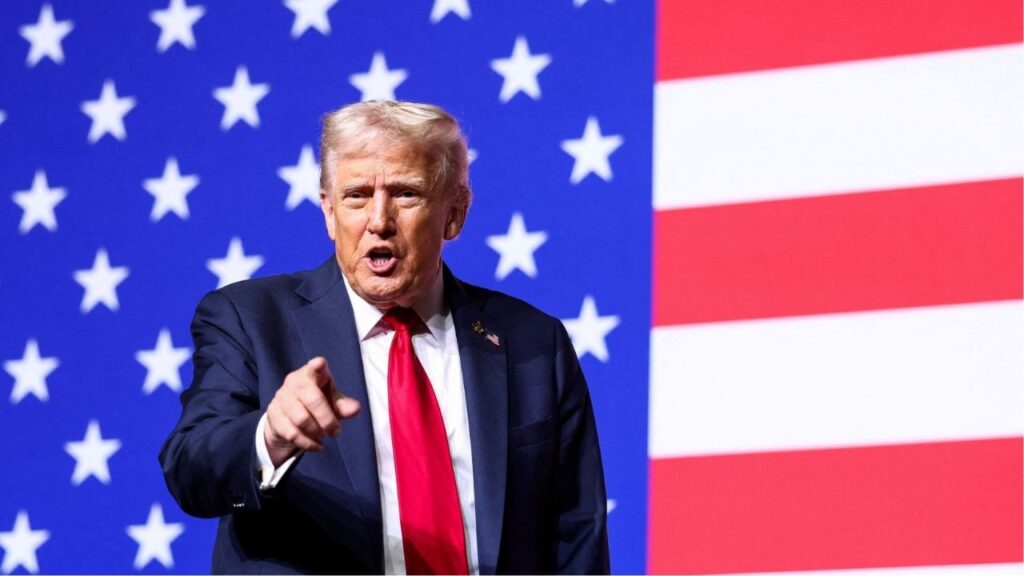DEA officers stand at a press conference following the arraignment of two alleged Mexican cartel operatives at the Brooklyn Federal Court Building, in New York, on Feb. 28, 2025. The Trump administration is considering major changes in how the Justice Department operates, including by merging the Drug Enforcement Administration and the Bureau of Alcohol, Tobacco, Firearms and Explosives into one, according to an internal memo. (Dave Sanders/The New York Times)

- Trump administration weighs merging DEA and ATF, cutting fraud investigations, and closing community relations and environmental offices.
- Critics warn the merger could reduce law enforcement resources, impacting efforts to combat gun trafficking and drug crimes.
- Lawmakers’ role in approving DOJ changes remains unclear, as restructuring could weaken career prosecutors and regulatory oversight.
Share
|
Getting your Trinity Audio player ready...
|
WASHINGTON — The Trump administration is considering a major restructuring of the Justice Department, including merging the Drug Enforcement Administration with the Bureau of Alcohol, Tobacco, Firearms and Explosives, according to an internal memo.
Other changes include drastically altering how the department’s public integrity section functions and sending its prosecutors to offices around the country; scaling back investigations into fraud and improper influence involving foreign citizens and companies; and closing the community relations office opened after a spate of police shootings.
The proposal, outlined in a memo issued by the deputy attorney general, Todd Blanche, and obtained by The New York Times, is a preliminary document, and officials are still seeking feedback before enacting the changes.
But even if only some elements are adopted, it would represent a significant and potentially disruptive shift in the way the department operates — reducing the importance of powerful units at headquarters created to hold crooked politicians, lawbreaking businesses and major polluters to legal account.
A spokesperson for the Justice Department did not immediately comment.
Trump Administration Wants to Downsize Justice Department
Overall, the Trump administration’s vision for the Justice Department, as outlined in the memo, is to downsize by consolidating some work inside its headquarters, while farming out other responsibilities to the U.S. attorney’s offices.
The plan to merge the DEA and ATF stoked fears that the plan might be a pretext for gutting both agencies, two of the smallest and underfunded entities in the sprawling Justice Department.
“Cutting resources from ATF would literally be defunding the police,” said Emma Brown, president of Giffords, the gun safety group created by Gabrielle Giffords, the former member of Congress who survived a shooting. “Cutting agents by merging the two agencies would reduce resources, weakening efforts to stop gun traffickers, straw purchasers and gun dealers who are breaking the law.”
Nonetheless, the memo clears up some of the uncertainty that has engulfed ATF in recent weeks. The administration had considered tucking the bureau, responsible for enforcing the nation’s gun laws, into the much more powerful FBI, an idea that many staff members regarded as a potentially disastrous move that would lead to friction, mission drift and marginalization.
Merging the DEA, which has around 10,000 employees, with the ATF, with a staff of around 5,000, makes some sense logistically, because many investigations involve both drugs and guns, according to officials who spoke on the condition of anonymity to discuss the proposal.
Such a merger would almost certainly require congressional approval, though under President Donald Trump, Congress appears to be playing a shrinking role in how the federal government is organized.
Lawmakers Usually Guard Their Authority Over Agencies
Historically, lawmakers on the appropriations committees zealously guarded their authority over the organization of agencies like the Justice Department. It is unclear if the current leaders in Congress intend to assert such authority during the Trump administration.
Administrations have long considered restructuring one or both of those agencies, but no major reorganization has occurred since the post-Sept. 11 era, when the Department of Homeland Security was created and the ATF was moved from the Treasury Department into the Justice Department.
The changes are described in the memo as part of the government’s efforts to downsize and streamline the federal workforce, in step with the Elon Musk-led Department of Government Efficiency. But like other DOGE-inspired efforts, the cost-saving rationale belies a deeper motive — none-too-gently shoving bureaucracies seen as bastions of the liberal deep state to the right.
Under the plan, antitrust offices in Chicago and San Francisco would close, as would environmental offices in Denver, Seattle, San Francisco and Sacramento, California. Civil litigation offices in New York, Chicago, San Francisco and Raleigh, North Carolina, would also be shut, according to the memo.
The proposal also calls for reassigning tax division lawyers to U.S. attorney’s offices around the country and consolidating the department’s various legal divisions, including for national security, criminal prosecutions and other matters, into a single office.
Memo Requests Feedback From Justice Department
In the memo to Justice Department employees, Blanche asked for feedback by Wednesday.
While elements of the proposal were long anticipated, the memo took senior department officials by surprise. Although Blanche was listed as the author, it was written in close consultation with his top deputy, Emil Bove III, according to people familiar with the situation.
The changes outlined in the memo could deal another setback to the ranks of the department’s most experienced nonpolitical career prosecutors, who have been subjected to a wave of firings, forced transfers and policy edicts since Trump’s inauguration.
Nonetheless, there appeared to be some effort to cushion the blow for lawyers in the divisions based in Washington, including the newly decentralized public corruption and community relations units, who might not be able to relocate to other parts of the country without serious hardship.
The interim chief of the department’s criminal division gave some of the officials the opportunity to apply for assignments lasting six to 12 months on other cases in Washington as an alternative, according to an email he sent to subordinates and obtained by the Times.
—
This article originally appeared in The New York Times.
By Devlin Barrett and Glenn Thrush/Dave Sanders
c. 2025 The New York Times Company
RELATED TOPICS:
Categories

Trump Is on the Ballot in 2026: Speaker Mike Johnson


















